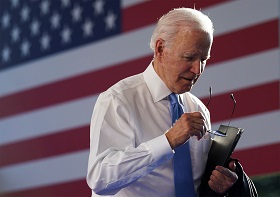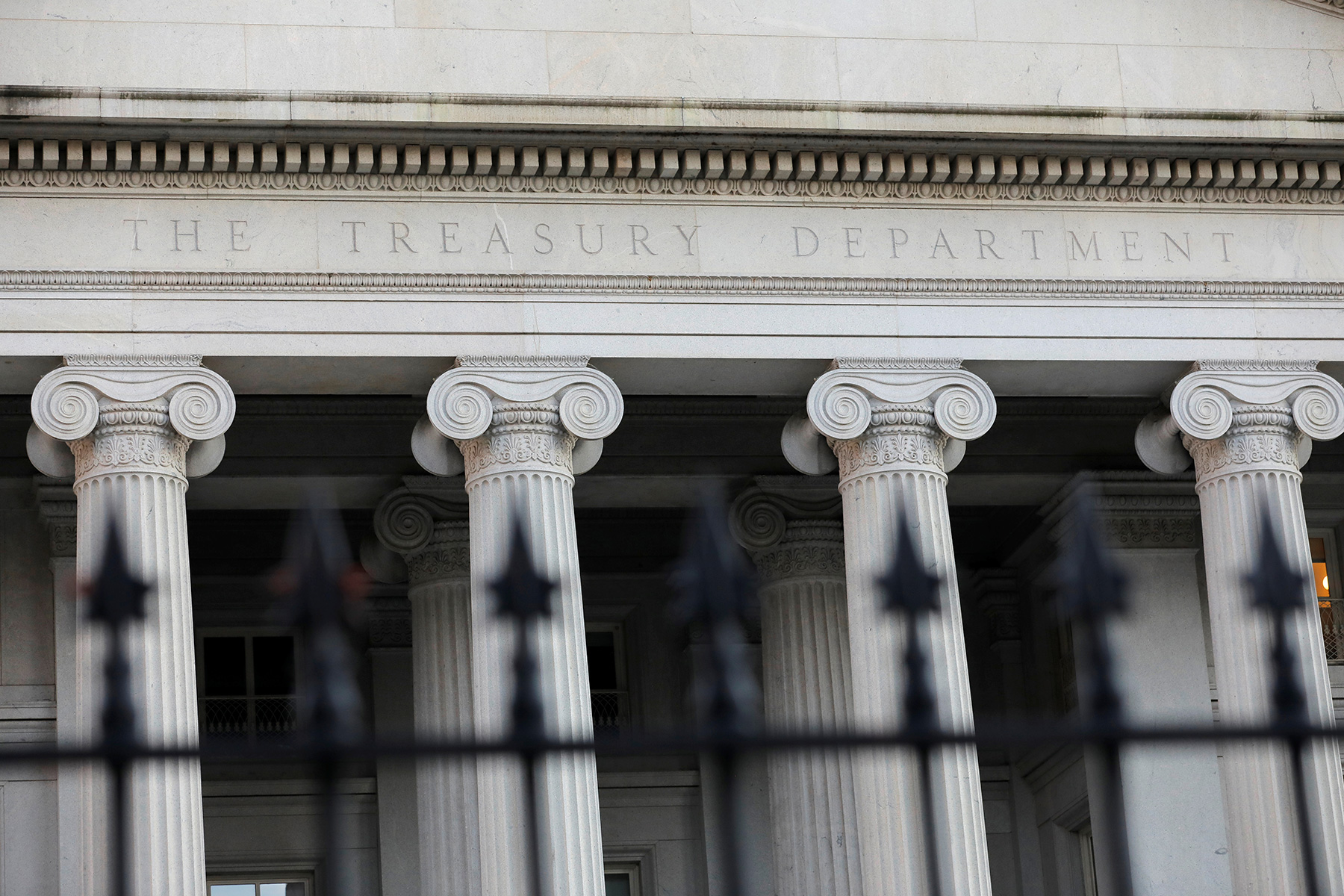The past year has been marked by a number of interesting trends in sanctions policy. In part, they were influenced by last year's victory of Democrat Joe Biden in the US elections. Washington is still the largest instigator of sanctions, and the restrictive measures taken by the Americans are the most dangerous for business. The change of administration in the United States has resulted in adjustments to the policy of sanctions against Russia, China and Iran. The EU’s toolkit of restrictive measures has been gradually developing, although there have been no significant breakthroughs. Belarus can be directly called the “target country” of the year. The level of sanctions levied against Minsk by the US, EU, UK, Canada and Switzerland has increased significantly. China has shown its determination to offer a strong response to the West’s restrictive measures.
The key intrigue of the coming year is the situation around Ukraine. At present, the scenario of an open military clash between Russia and Ukraine is the only real factor that can lead to a radical increase in the quantity and quality of sanctions pressure on Russia. In the event of a war, the Iranian model will most likely be used against Russia: a phased ban on the purchase of Russian oil and, possibly, gas, as well as the blocking of all key banks and enterprises. So far, such a scenario is unlikely. But history is full of unlikely events that came to life and became natural on the basis of afterthought.
The past year has been marked by a number of interesting trends in sanctions policy. In part, they were influenced by last year's victory of Democrat Joe Biden in the US elections. Washington is still the largest instigator of sanctions, and the restrictive measures taken by the Americans are the most dangerous for business. The change of administration in the United States has resulted in adjustments to the policy of sanctions against Russia, China and Iran. The EU’s toolkit of restrictive measures has been gradually developing, although there have been no significant breakthroughs. Belarus can be directly called the “target country” of the year. The level of sanctions levied against Minsk by the US, EU, UK, Canada and Switzerland has increased significantly. China has shown its determination to offer a strong response to the West’s restrictive measures.
Back in early 2021, Joe Biden was expected to revise the sanctions policy. Usually, a US administration change does not result in a radical change in key priorities. Presidents cannot arbitrarily strike down the legal mechanisms for sanctions enshrined in US law. In addition, the abolition of sanctioned executive orders of predecessors without serious necessity is the exception, not the rule. However, Donald Trump's presidency was so contradictory that changes were expected even given the stable and conservative track of American foreign policy. And such changes really followed.
First of all, Biden overturned Trump's highly controversial ICC sanctions order.
The previous president had introduced them in full compliance with American law, motivating his decision to protect the interests of US citizens.
But the actions of the Republican administration had been criticised by both American lawyers and European allies who support the Rome Statute. The Democratic President decided to cancel the controversial decree.
Biden did the same with Trump's most controversial executive orders against China. In particular, he overturned the executive orders of his Republican predecessor that banned WeChat and TikTok in the United States. Previously, both companies achieved the suspension of Trump’s decrees through the courts. The Chinese company Xiaomi has also achieved success in a lawsuit against the Pentagon - as a result, it was excluded from the list of Chinese communist military companies. Biden abandoned the excessive ideologisation of pressure on China. He especially modified Trump's Executive Order 13959, abandoning the concept of "Chinese communist military companies", although the state of emergency itself and sanctions against such companies were retained.
There was also good news for Huawei. The US Department of Justice has dropped the criminal case against the financial director of the company, Meng Wanzhou, who was under house arrest in Canada. The Chinese side released two previously detained Canadian citizens.
The good news for China ends there. All previously established legal mechanisms for sanctions against China continue to operate. A lot of them had appeared under Trump. They include the Hong Kong Autonomy Act, legislation on the rights of ethnic minorities in the PRC, and trade restriction regimes against big Chinese companies that are, according to the United States, associated with the PRC's military-industrial complex. These include a number of high-tech and industrial companies. The course to contain China has not changed, although it has become more cautious, escaping the shocks and scandalous of the Trump era. The United States applied blocking sanctions against a number of Chinese officials, although it did not go for stricter restrictions on financial institutions.
Sanctions against China were imposed by the European Union and other US allies. Brussels has done so using its new legal mechanism on human rights. Beijing delivered an immediate and harsh response. Last year China did a great job in the development of its counter-sanctions mechanism. New mechanisms were used in response to the demarches of Western countries. China is gradually formalising its sanctions policy, making it more similar to the measures taken by Western countries. At the same time, Beijing is also using the measures it has relied on in the past, limiting access to its market or reducing the level of economic relations. Lithuania felt this in full because of the active support it offered to Taiwan.
Regarding Iran, there were many hopes for the resumption of the JCPOA negotiations (Iranian nuclear deal) and, at least partially, the easing of sanctions. In 2018, Trump unilaterally pulled out of the deal and was severely criticised by all of the parties which had signed it. However, he acted strictly within the framework of American law. US participation in the JCPOA did not have the status of an international treaty. Strictly speaking, it was an “executive commitment”. In addition, US law required the president to report Iran's commitment to the deal every three months. This mechanism was used by Trump, who cancelled the participation of the United States and renewed the sanctions regime. He implemented the exact instructions of the Republican Party against Iran. In addition, he showed that for him, US legislation is a more weighty argument than the UN Security Council resolution. Starting in 2018, the Trump Administration significantly increased sanctions against Tehran, expanding the list of political demands (12 Demands of Pompeo).
The appearance of a Democrat President in the White House did not change the situation. Negotiations on the JCPOA have resumed, but haven’t yielded any results yet. Biden did not even rescind Trump's executive orders, which introduced additional sanctions. Iran is also in no hurry to abandon the developments to the nuclear programme made after Trump's 2018 demarche. Apparently, they simply do not believe that the lifting of US sanctions will be guaranteed and long-term. There is every reason for them to have this point of view. The most serious is the institutional design of the United States. The Senate is unlikely to approve any decision to lift sanctions on Iran. If Biden follows the path of Barack Obama and tries to re-formalise the deal as an "executive commitment", then it risks being cancelled again by a future Republican president. In addition, given the current state of the nuclear programme, Biden simply will not be able to certify the deal, taking into account the requirements of the Iran Nuclear Agreement Review Act (INARA). Ultimately, Iran continues to be in the grip of sanctions and appears to make headway in its nuclear path.
Regarding Russia, there was a "roller coaster". Earlier this year, the Biden administration launched a sanctions attack in connection with the Navalny case and another report that Russia interfered in US elections (in 2020). The intensity of the self-righteous ire was far from what was witnessed after the Trump election. The US intelligence report, issued in accordance with Executive Order 13648, spoke of "petty hooliganism" rather than of some systemic attack on American elections. In connection with the Navalny case, the US President was obliged to apply Art. 307 of the Chemical and Bacteriological Weapons Destruction Act 1991 (CBW Act). These measures culminated in April 2021, when Biden signed Executive Order 14024. The Order systematised claims against Russia and imposed sanctions on the Russian high tech sector. At the same time, a number of Russian cyber security companies were blocked. Biden has expanded bans on the purchase of Russian debt in the primary market. Now this prohibition applies to bonds denominated in rubles. The number of Russian persons included in the Entity List and MEU List was expanded. They are subject to export restrictions. 10 Russian diplomats were expelled from the United States (Moscow responded with expulsions and banned the US diplomatic missions from hiring Russian personnel). However, following the Putin-Biden summit in Geneva, the situation has stabilised. Episodes of expanding sanctions on new Russian individuals have been sporadic. Markets were worried amid the emergence of a new decree and expectations for the implementation of Art. 307 of the CBW Act, but then lost interest in the sanctions topic.
The situation with Nord Stream 2 has also stabilised. Throughout 2020, the US discussed tougher sanctions against Russian pipeline projects. However, the eventually adopted PEESCA law (an amendment to the 2019 PEESA law) did not radically change the situation. Moreover, it took into account the concerns of Washington’s European allies to some extent. The Biden administration used sanctions against Russian legal entities and vessels involved in the Nord Stream 2 project, but it did not block it. As a result, the pipeline was completed.
The EU has also used sanctions against Moscow. The beginning of the year was marked by a great heat of passion in connection with the Navalny case and the unsuccessful visit to Moscow by the head of European diplomacy. However, the EU's restrictive measures were limited to the use of blocking sanctions against high-ranking officials. They did not damage the economy, and the markets simply ignored them.
A real hail of sanctions fell on the Republic of Belarus. Western pressure on Minsk began in 2020 after the presidential elections and subsequent public protests. Since the incident with the Ryanair flight, the escalation of sanctions has accelerated significantly. The blocking sanctions of the USA, EU, Canada, Great Britain and Switzerland fell on a number of Belarusian officials, businessmen close to the authorities, state structures and backbone companies for Belarusian exports. Minsk faced sectoral sanctions against its financial sector, the tobacco industry, oil refining and potash production. All these restrictions have increased as a result of the "migration crisis" on the Polish-Belarusian border.
The key intrigue of the coming year is the situation around Ukraine. At present, the scenario of an open military clash between Russia and Ukraine is the only real factor that can lead to a radical increase in the quantity and quality of sanctions pressure on Russia. In the event of a war, the Iranian model will most likely be used against Russia: a phased ban on the purchase of Russian oil and, possibly, gas, as well as the blocking of all key banks and enterprises. So far, such a scenario is unlikely. But history is full of unlikely events that came to life and became natural on the basis of afterthought.
First published in the Valdai Discussion Club.






